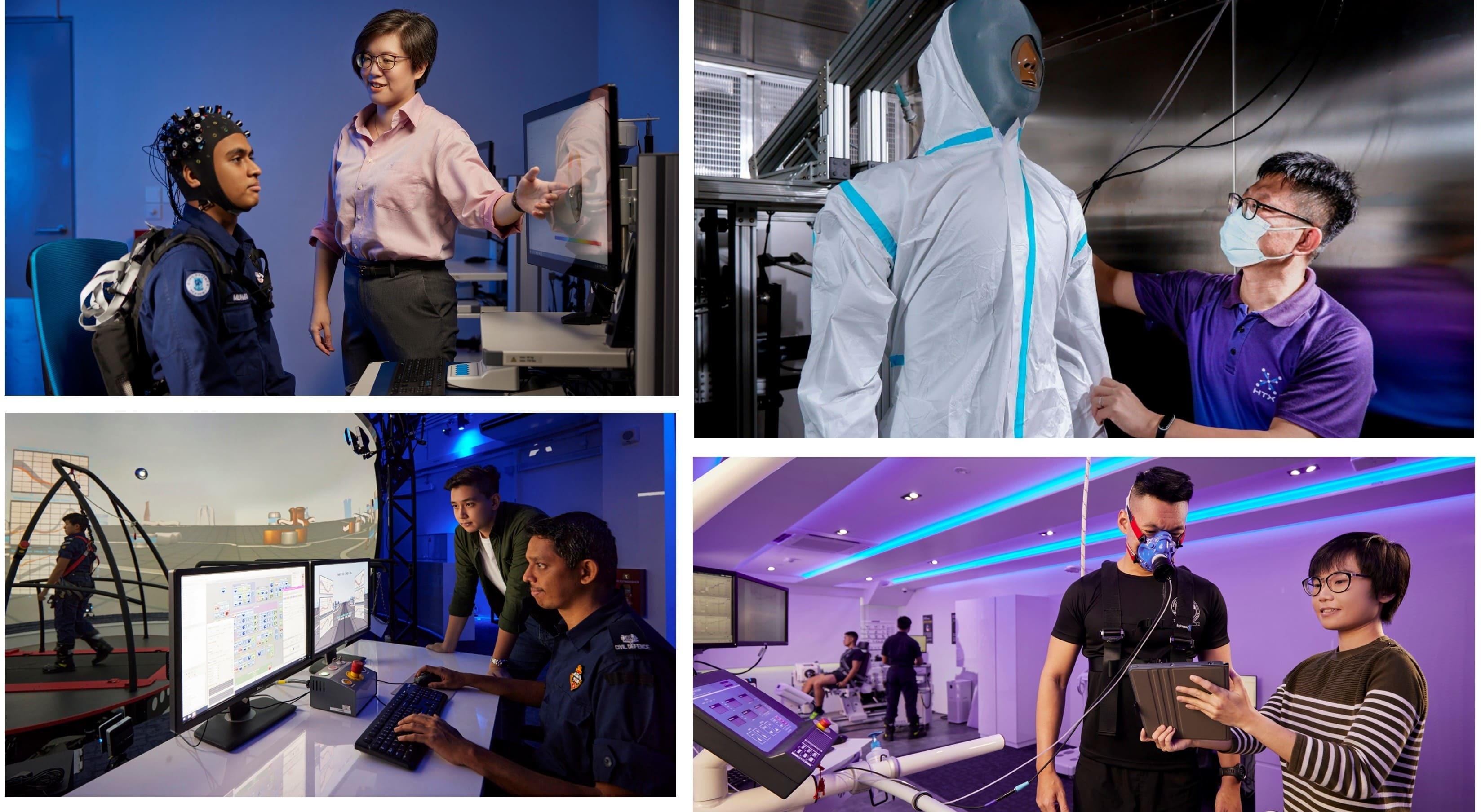 The Human Factors & Simulation Centre of Expertise draws on the disciplines of Human Factors and Simulation to force multiply the Home Team by designing processes and technologies to optimise human performance.
The Human Factors & Simulation Centre of Expertise draws on the disciplines of Human Factors and Simulation to force multiply the Home Team by designing processes and technologies to optimise human performance.
The Human Factors & Simulation Centre of Expertise (HFS CoE) draws on the disciplines of Human Factors and Simulation to force multiply the Home Team by designing processes and technologies to optimise human performance.
What is Human Factors?
Human Factors is the application of scientific principles and evidence-based research into the engineering and designing of products, processes, and systems for human use.
What is Simulation?
Simulation is the use of modelling to create representations of the real world or hypothetical systems so that their key characteristics, processes, and behaviours can be tested, engineered, and optimised.
Our Research
We conduct research in three broad areas:
1. Functional Performance
To optimise functional performance for the Home Team, HFS CoE systematically examines the human physical and cognitive functions in the different operational contexts. Insights from this research area would help inform applications like the optimisation of work-rest cycles for our Home Team officers, the development of wearables that can best augment our operational capabilities, and also team cognition for optimal group performance.
2. Modeling & Simulation
To develop predictive capabilities for front end planning, HFS CoE builds human simulation models and high fidelity simulated systems to enhance training and maintain operational readiness. This includes driving and motion simulators, instrumented manikins, and firing range simulators.
3. Human-System Integration
To drive collaborative efficiencies and effectiveness between humans and system, HFS CoE focuses on the interaction of human cognition and robots, cognitive modelling, information architecture, and on the harnessing of sensors, robotics and AI in harmonising workspaces for the Home Team.
How HFS CoE is Organised
HFS CoE is built on two pillars, Modelling & Simulation (M&S) and Human Performance, Interaction, and Teaming (HFIT).
The Modelling & Simulation (M&S) pillar has three clusters. First, the XR & Serious Games cluster focuses on Virtual Reality (VR), Augmented Reality (AR), Mixed Reality (MR), and Serious Games. The High Fidelity Simulators cluster focuses on developing driving and motion simulators, instrumented manikins, and firing range simulators. Finally, the Constructive Simulation cluster focuses on 2D/3D visualisation and developing digital human models and computer-generated forces.
Human Performance, Interaction, and Teaming (HFIT) is HFS CoE’s second pillar. Like M&S, HFIT also has three clusters. The Physical Performance cluster focuses on kinesiology, biomechanics, and exercise physiology. The Cognitive Performance cluster focuses on applying behavioural, neuroscientific, and experimental methods to examine cognitive functions such as attention, learning, and decision-making. Finally, the Human-Robot Interaction cluster focuses on cognitive modelling, information architecture, and user safety.

